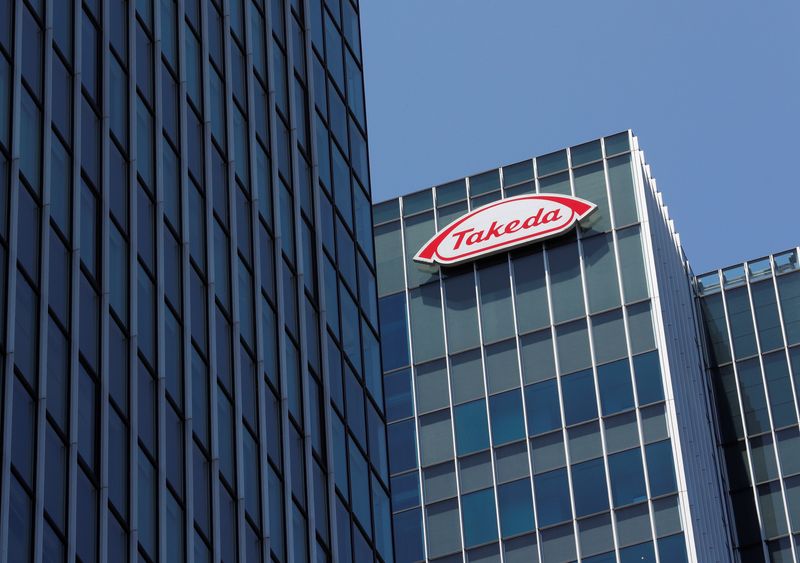TOKYO (Reuters) -Japan’s Takeda Pharmaceutical posted first-quarter profit that beat analysts’ estimates, citing solid sales of mainstay drugs and the launch of new products including its dengue fever vaccine.
The result marked a better-than-expected start to a rebuilding year for Takeda, as main sellers lose patent protection and it works to wring new winners out of its drug pipeline.
Operating profit rose 12% from a year earlier to 168.6 billion yen ($1.2 billion) in the three months through June 30, the drugmaker said. That compared with an average forecast of 150.7 billion yen from six analysts polled by Refinitiv.
The company held its forecast for full-year operating profit at 349 billion yen. Analysts expect 481.1 billion yen on average for the year.
Japan’s biggest pharmaceutical company in May said profit would likely decline this fiscal year as it loses sales exclusivity for its blood pressure drug Azilva in Japan and its hyperactivity drug Vyvanse in the United States.
Takeda agreed in December to buy an experimental psoriasis drug from U.S.-based Nimbus Therapeutics for as much as $6 billion, marking its first major purchase since its $59 billion takeover of Shire Plc in 2019.
European regulators approved Takeda’s long-awaited dengue vaccine QDENGA in December, a needed win for the company’s in-house pipeline.
The company voluntarily withdrew its application for U.S. approval of the vaccine this month, citing data collection issues. It said on Thursday it expected eight key regulatory decisions by the end of the fiscal year.
Takeda’s shares have climbed 7.1% this year, trailing a 26.1% surge in the benchmark Nikkei.
($1 = 140.2200 yen)
(Reporting by Rocky Swift; Editing by Tom Hogue, Robert Birsel)
